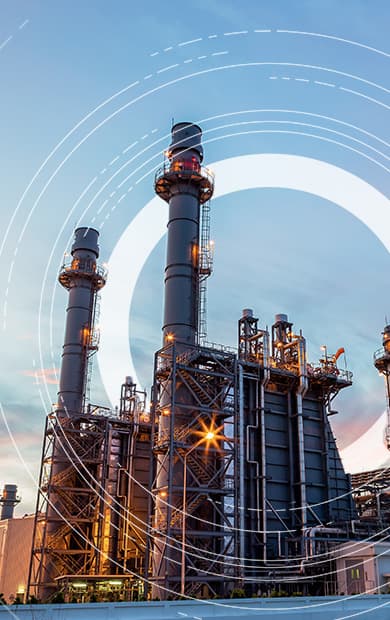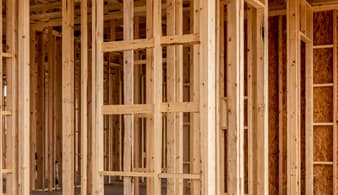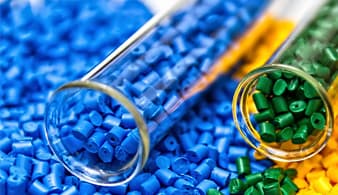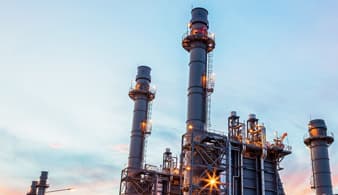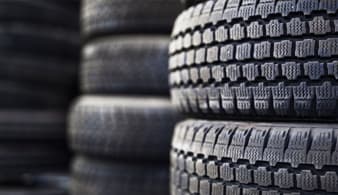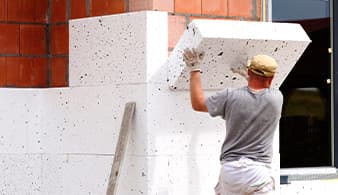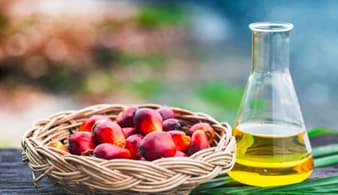Overview
From wellhead to warehouse, the global chemical industry is a complex chain stretching across the world. It involves chemical producers, converters, transporters and plastic goods manufacturers, to name just a few. To navigate this often opaque industry, you need access to the latest market intelligence.
Our industry-recognised experts provide in-depth pricing data, news and analysis on the markets that matter most to you. And they’re located across the world’s principal commodity trading and production centres.
Our coverage connects feedstock markets with aromatics, methanol, olefins, polymer and oleochemical markets. We help you to mitigate risk by truly understanding your market, from the wellhead to the end product.
Chemicals - Our market coverage
Latest chemicals news
Browse the latest market moving news on the global chemicals industry.
Brazil flags sharp US PE dumping duties
Brazil flags sharp US PE dumping duties
Sao Paulo, 5 February (Argus) — Brazil has issued a recommendation that could nearly triple provisional anti-dumping duties on US polyethylene (PE) imports, effectively shutting out most shipments, according to a department of trade defense Decom report into US and Canadian exports. The report, issued on 2 February and seen by Argus , outlines the key findings of the investigation into PE imports under NCM codes 3901.10.30, 3901.20.29 and 3901.40.00. Decom — part of trade ministry Mdic — calculated a dumping margin of $734.32/metric tonne (t), equivalent to 79.3pc, for US exporters. The authority determined dumping margins for Canada of $264.99/t (26.9pc) for one producer-exporter and $232/t (26.3pc) for another. Dumped imports are causing material injury to Brazil's domestic resin industry, and a causal link exists between the injury and the imports under investigation, Decom said. Brazil currently enforces provisional anti-dumping duties of $199.04/t on US-origin PE and $238.49/t on Canadian-origin material. These provisional duties were imposed in August 2025 and remain in effect through 28 February as the investigation moves into its final phase. Interested parties have a 20-day window to file final comments following the report's publication. Once that period ends, Decom will prepare its final determination and forward it to foreign trade chamber, Camex. The Camex executive management committee (Gecex) is expected to make a final decision by 14 May, the legal deadline for concluding the probe. The outcome of the case is expected to have significant implications for regional PE trade flows. Market participants await Decom's final findings, which will determine whether the provisional duties are upheld, revised, or lifted entirely. Limited effect The provisional duties had a limited effect on Brazil's imports last year, as the US remained Brazil's top supplier even as it lost market share, official Comexstat data show. Brazil's PE import values totaled $1.61bn last year, a 1.7pc decrease from $1.63bn in 2024. Import volumes increased by 2.2pc to 1.46mn t in 2025 from 1.42mn t the prior year. The US was Brazil's main exporter, accounting for around 961,890t last year, with its share of total volume falling to 66pc from 71pc in 2024. Argentina was the second-largest exporter to Brazil, shipping nearly 218,380t last year and boosting its share to 15pc from 11pc. Saudi Arabia rose to third place with approximately 56,445t, representing 4pc of Brazil's total imports last year. Canada's deliveries fell by 40pc to 49,810t in 2025, with its share falling to 3.4pc from 6pc in 2024. Egypt dropped to fifth place with around 47,795t, accounting for 3.3pc of the total volume. By Fred Fernandes Send comments and request more information at feedback@argusmedia.com Copyright © 2026. Argus Media group . All rights reserved.
US homes more affordable as incomes rise: NAR
US homes more affordable as incomes rise: NAR
Houston, 4 February (Argus) — US housing affordability improved in the fourth quarter, extending a trend that emerged during the second half of 2025 after a fourth-month skid earlier in the year. Growth in personal income outpaced rising home prices in the US during the fourth quarter, improving affordability to the highest levels in more more than a year, new data from the National Association of Realtors (NAR) show. The NAR's quarterly affordability index rose to 109.1 in the fourth quarter of 2025,its preliminary Housing Affordability Index (HAI) shows. HAI values of 100 show that a family with the median US income has enough to qualify for a mortgage on a median-priced home. An index above 100 signals increasing affordability of a median family income. Median preexisting single-family home prices rose to $414,900 during the fourth quarter, up by 1.2pc from the same three-month period in 2024. The median family income rose by 4.7pc during the same period. Additionally, the average mortgage interest rate fell to 6.31pc from 6.74pc in the fourth quarter the prior year. NAR's affordability index remained below 100 in 2023 and 2024, contributing to slower housing demand during the two-year period. But affordability rebounded into the third quarter of 2025 from the prior quarter and continued to improve through the end of the year. Increasing housing affordability in the US is a bullish demand signal for polyvinyl chloride (PVC) producers and distributors. PVC is widely used in housing construction, and improved home affordability could spur new construction and strengthen PVC demand after two years of lagging consumption. Housing starts fell to a five-year low in October 2025, the most recent data point, indicating that a recovery in 2026 is unlikely. Mortgage rates need to fall further to induce demand as many would-be buyers remain locked into their current homes with previously-low mortgage rates, sources said. Rising incomes could alleviate otherwise low consumer sentiment and spur buying interest, while strong home prices coupled with lower borrowing rates could increase interest for new building projects. But signs currently point to the 2026 building season being a replay of 2025. By Gordon Pollock Send comments and request more information at feedback@argusmedia.com Copyright © 2026. Argus Media group . All rights reserved.
Brazil’s Dec industrial output lowest since mid-2024
Brazil’s Dec industrial output lowest since mid-2024
Sao Paulo, 3 February (Argus) — Brazil's industrial output fell by 1.2pc in December from a month prior, marking the steepest decline since July 2024, according to national statistics agency IBGE. All four major categories showed declines, with capital goods and durable consumer goods output down by 8.3pc and 4.4pc, respectively, from November 2025 . Auto, chemicals and metallurgy were among the largest negative contributors, down by 8.7pc, by 6.2pc and by 5.4pc, respectively, from November, IBGE said. Output of petroleum coke, oil products and biofuels increased by 5.4pc in December from the previous month, after three consecutive monthly drops, while the extraction industries pushed up output by nearly 1pc. Transformative industry ended the year at 1.9pc below November 2025. IBGE data show. Despite month-to-month decreases, December's industrial output rose by 0.4pc from a year earlier. Plastic materials and machinery and equipment represented the largest contributors to the increase, which is also due to an additional workdays this year, IBGE said. 2025 output ticks up Brazil's 2025 industrial output reached a third increase in a row at 0.6pc above a year earlier and pre-pandemic levels, following a 3.1pc rise in 2024, IBGE said. Extraction and food industries were among the largest contributors to the increase, up by 4.9pc and 1.5pc, respectively. Machinery and equipment, metallurgy, chemicals and pharmacy products pushed up the Brazilian industry in 2025, despite a 5.3pc slump in the production of oil products and biofuels. Production of durable and intermediate goods — feedstocks for industries that do not directly reach the final consumer — rose by 2.5pc and 1.5pc in 2025, respectively, from a year earlier. Brazilian auto industry, crude and natural gas production helped lead gains, IBGE said. Brazil's central bank has kept its target interest rate stable at 15pc since June 2025. Brazil's headline inflation decelerated to an annual 4.26pc in December . By João Curi Send comments and request more information at feedback@argusmedia.com Copyright © 2026. Argus Media group . All rights reserved.
Brazil petchem industry flags Reiq 2026 gap
Brazil petchem industry flags Reiq 2026 gap
Sao Paulo, 2 February (Argus) — Brazilian chemical and petrochemical industry associations are urging the federal government to deliver a rapidfix for the 2026 gap in the Special Chemical Industry Regime (Reiq), warning that regulatory uncertainty is accelerating plant shutdowns and job losses across key production hubs. In a joint letter sent on 26 January to vice-president and industry minister Geraldo Alckmin, labor unions and industry groups — including Abiquim — said presidential vetoes affecting Reiq in December by removing key tax-relief provisions and carried into the newly enacted Special Sustainability Program for the Chemical Industry (Presiq), which focuses on the national petrochemical chain modernization,have created an "immediate and severe" impact on domestic producers, mainly due to the sudden loss of a long-standing cost-reduction tool with no transitional safeguards. Companies in Sao Paulo state have already closed units and cut shifts in Cubatao and Guaruja, according to the groups. Industry groups argue that without the Reiq tax relief, historically centered on PIS/Cofins reductions for feedstocks such as naphtha and natural gas and effectively revoked by the presidential vetoes — Brazil's chemical chain faces intensified competitive pressure from global oversupply, foreign subsidy schemes and aggressive pricing from Asian and Middle Eastern exporters. The regulatory gap is prompting irreversible divestment decisions, threatening the core of Brazil's petrochemical complex, they say. The entities called on the Ministry of Development, Industry, Trade and Services (Mdic) to restore predictability for 2026, saying the issue is no longer a tax debate but a strategic decision for Brazil's industrial competitiveness and employment base. The government has recently highlighted industrial policy priorities through its New Brazil Industry program and strengthened trade-defense tools, but the signatories said action on the Reiq must come "urgently, preferably in January," to avoid further disruption. History President Luiz Inacio Lula da Silva vetoed provisions in December 2025 that would have extended Reiq benefits into 2026 or ensured an automatic transition to the Presiq framework. The administration cited fiscal responsibility and the absence of compensatory budget measures. With Presiq scheduled to begin only in 2027, the vetoes leave a regulatory gap in 2026. By Isabela Mendes Send comments and request more information at feedback@argusmedia.com Copyright © 2026. Argus Media group . All rights reserved.
Spotlight content
Browse the latest thought leadership produced by our global team of experts.


